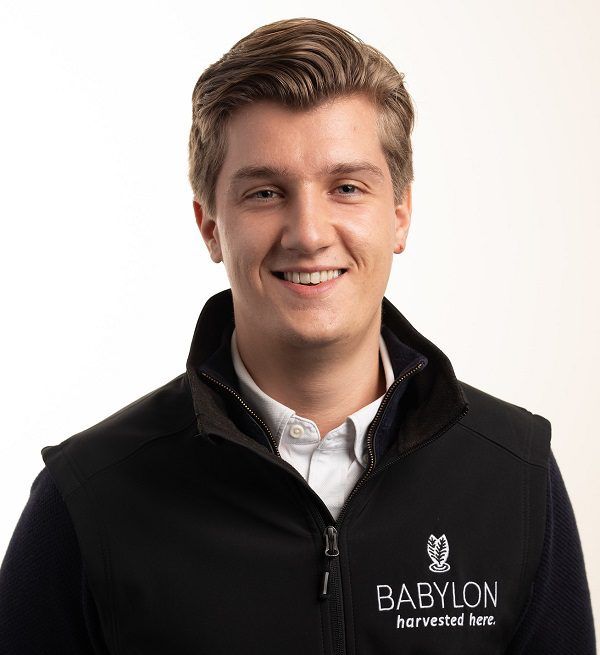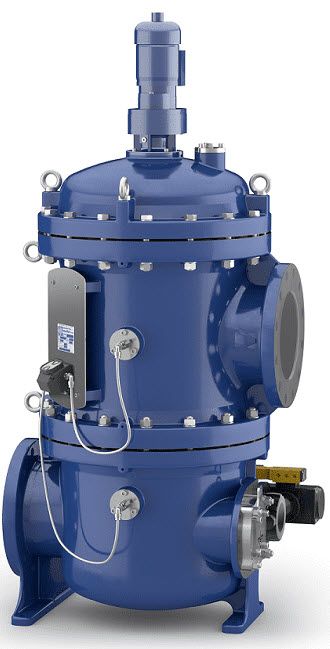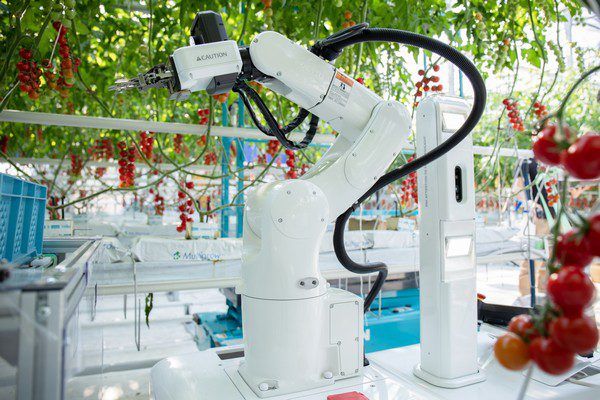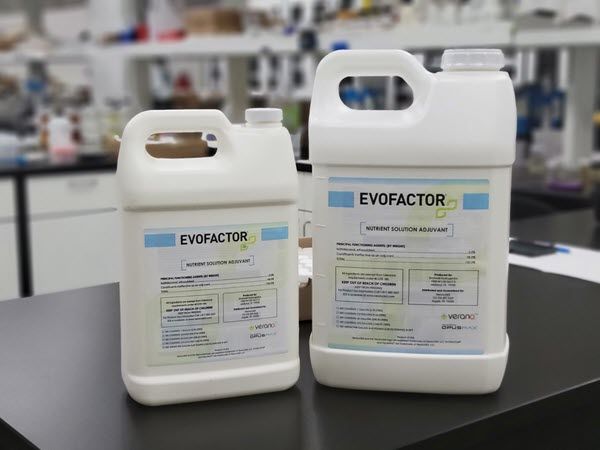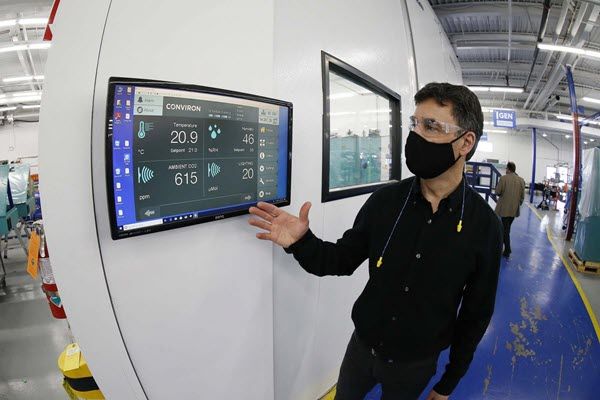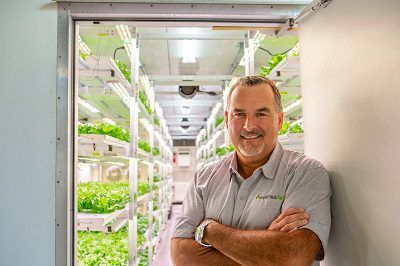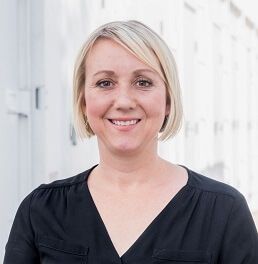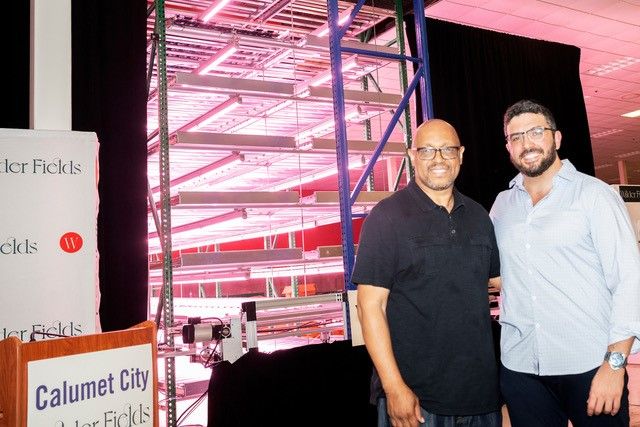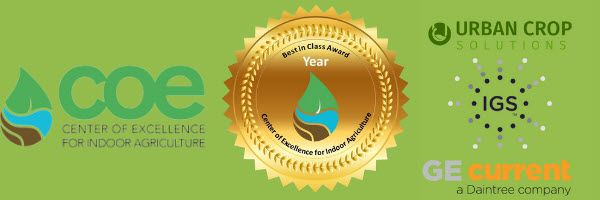Going Mainstream | Q & A With Babylon Micro-Farms CEO Alexander Olesen
 From the beginning, Babylon Micro-Farms CEO Alexander Olesen has sought to make vertical farming accessible to mainstream markets. Combining subscription services with advanced technology and innovative equipment, the Babylon Micro-Farms “all-in-one” farming experience does just that for a growing customer base, including universities, hospitals, restaurants, resorts, senior care facilities and more.
From the beginning, Babylon Micro-Farms CEO Alexander Olesen has sought to make vertical farming accessible to mainstream markets. Combining subscription services with advanced technology and innovative equipment, the Babylon Micro-Farms “all-in-one” farming experience does just that for a growing customer base, including universities, hospitals, restaurants, resorts, senior care facilities and more.
We had the chance to catch up with Alexander to learn more about his innovative company and exciting plans for the future in this month’s CEO Q &A.
Can you share a little about how and why you got started, including the story behind the name of your company?
We started out exploring applications for small scale hydroponic systems in refugee camps while studying at the University of Virginia. Through that process, we built prototype systems capable of feeding a family and observed that the user experience was complicated and commercially available automation was prohibitively expensive, which represented a fundamental constraint for the adoption of small scale vertical farms.
 We founded the company to miniaturize the semi-automation found in commercial-scale farms, at a fraction of the cost and designed it to be controlled via the cloud to allow for aggregated data collection.Today we’ve built and deployed that underlying technology on our fleet of distributed Micro-Farms in North America. We’re just getting started in our journey to apply our underlying technology to different vertical farming systems and in doing so expand the market for sustainable indoor farming.
We founded the company to miniaturize the semi-automation found in commercial-scale farms, at a fraction of the cost and designed it to be controlled via the cloud to allow for aggregated data collection.Today we’ve built and deployed that underlying technology on our fleet of distributed Micro-Farms in North America. We’re just getting started in our journey to apply our underlying technology to different vertical farming systems and in doing so expand the market for sustainable indoor farming.
We decided to call the company Babylon to pay homage to the hanging gardens of Babylon, one of the first known aquaculture systems and one of the ancient wonders of the world.
Congrats on securing $4 million in grant and investment funding earlier this year. Tell us what this means for your Babylon IQ software program and expansion plans.
 We’re accelerating the commercialization of indoor farming service with hundreds of Micro-Farms being installed in foodservice operations across North America. We’re confident in our technology’s ability to deliver an unparalleled growing experience and it’s exciting to see the data coming in from our growing base of happy customers.
We’re accelerating the commercialization of indoor farming service with hundreds of Micro-Farms being installed in foodservice operations across North America. We’re confident in our technology’s ability to deliver an unparalleled growing experience and it’s exciting to see the data coming in from our growing base of happy customers.
What do you hope to achieve with the partnership you’ve entered into with collegiate food service company, Harvest Table Culinary Group.

We’ve built a tremendous partnership with Harvest Table Culinary Group and they’re one of the most innovative culinary teams in the US. They’re pioneering a new level of responsible, local food sourcing at college campuses across the country and we’re proud to support them in their efforts to inspire a new generation of healthy consumers.
You’re also working with senior communities and hospitals. What advantages and goals do you have for these sectors and are there other markets you’re looking at?
There are organizations of all different types that are demanding their foodservice operations source higher-quality ingredients and reduce their environmental footprint. The technology we’ve developed and the service we’ve built on top of it enables these organizations to literally source food on-site, all year round, without any of the headaches associated with outdoor farming.
It’s a new way of doing things and it’s amazing to see hospital patients, senior citizens, students, and many other groups adopting Micro-Farms as a means of sourcing the highest quality produce and growing it right in front of the end consumer. The benefit of our remote management platform and our growing customer base is that the data is flowing back to us in abundance.
We’re gaining a very granular understanding of how our customers operate, what they consume, and, critically, how we can help to have a better experience. These insights are driving our success in the institutional foodservice space and they’ll allow us to expand into adjacent markets in the near future.
Where do you see your company 5 or 10 years from now – what’s your ultimate goal?
 Our goal has always been to make vertical farming accessible to mainstream markets. We’re proving that it’s commercially viable with our foodservice partners and simultaneously we’re seeing the rapid expansion of the local food movement that’s driving a ton of innovations in the CEA space.
Our goal has always been to make vertical farming accessible to mainstream markets. We’re proving that it’s commercially viable with our foodservice partners and simultaneously we’re seeing the rapid expansion of the local food movement that’s driving a ton of innovations in the CEA space.
We’ve developed our technology and service specifically for small scale on-site vertical farms and we’re now pioneering an “intel inside” model to enable new vertical farming systems to be successful.
In 5 to 10 years we are going to see a plethora of on-site systems for different markets and crop types and we hope they’ll all be powered by BabylonIQ.
To learn more about Babylon Micro-Farms:
P: 877.589.2884
W: www.babylonmicrofarms.com
E: info@babylonmicrofarms.com
Babylon Micro-Farms Video Resources
- Babylon -Planting The Seed For A Healthier Future
- How It Works
- Harvested Here — Lynchburg General Hospital , Centra Health
- Harvested Here — Comonwealth Senior Living
